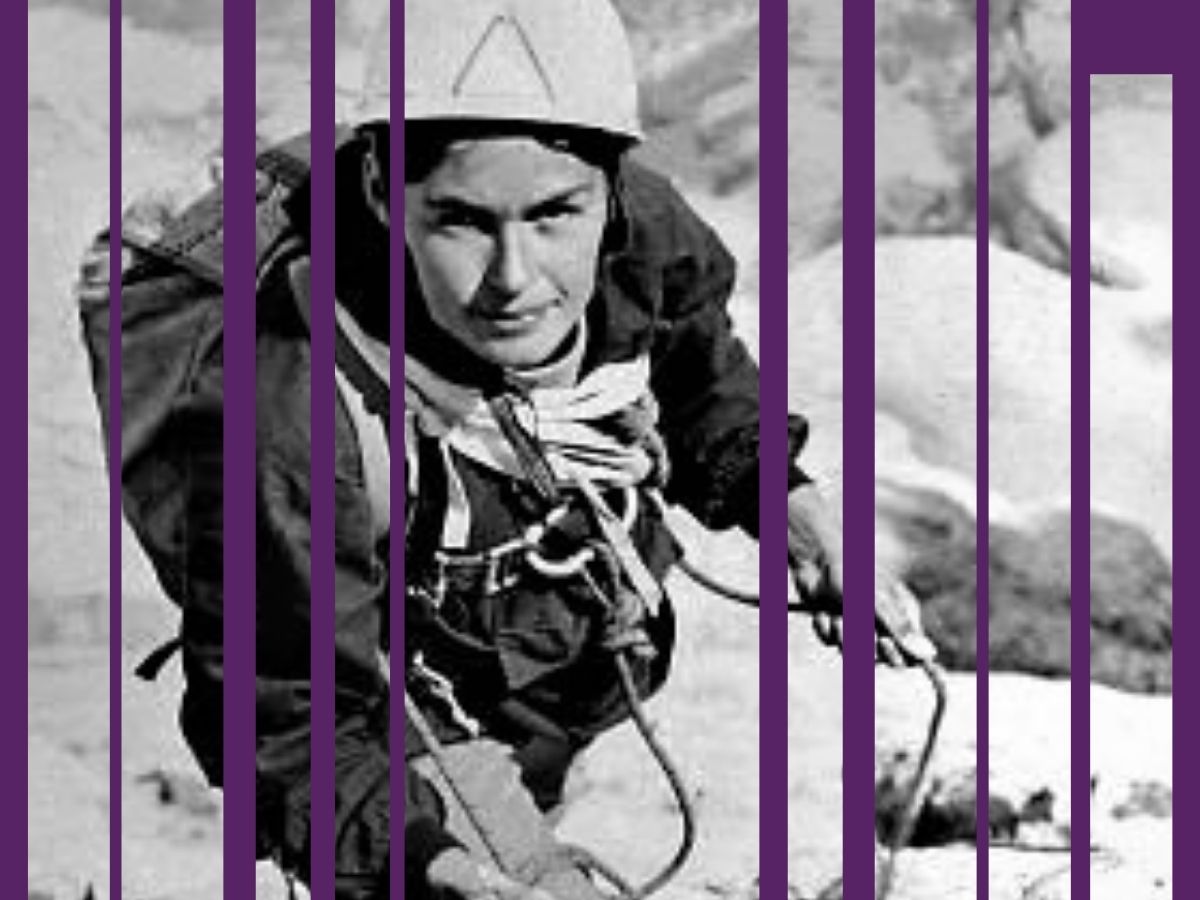Inspiring biographies: Wanda Rutkiewicz, the most outstanding mountaineer of all time

Considered the best mountaineer in all times. The Polish Wanda RutkiewiczIn addition to all the impressive ascents she achieved during her climbing career, she was also responsible for breaking the social patterns that dominated at a time when it was very difficult for women to do what they really wanted to do and were passionate about.
His birth and childhood
Wanda Rutkiewicz was born in Plungé, Poland (now part of Lithuania), on 4 February 1943. When World War II came to an end, he and his humble family had to move to Wroclaw, located in western Poland. It was there that he managed to study and graduate with a degree in electrical engineering. At that time, a field reserved almost exclusively for men.
Wanda's childhood was not a happy one; at the age of 5 her older brother died while handling an old war mine with some friends. Then the process of separation from her parents was hard, and at the age of 29, her father was murdered by criminals who broke into their home to steal.
Although since her childhood she had to share the burden of this difficult family situation, thanks to her tenacity, in addition to studying for a university degree she also excelled in volleyball, being selected to form part of the national team and from the age of 18 she began to make a name for herself as an excellent mountaineer. From that age she demonstrated her aptitude and skills in the practice of this sport.
Achievements as a climber
On 16 October 1978, Wanda Rutkiewicz became the third woman, although she was the first European-born woman to conquer the summit of Mount Everest. Among the many accolades she received after reaching Everest, one of the most appreciated by Wanda was from the Pope (the Polish Karol Wojtyla) who was inaugurated as Pope on the exact same day that Wanda reached the summit.
In 1983, at the age of 40, she conquered a new eight-thousander, Broad Peak (8,047 m), together with the climbers Anna Czerwinska and Krystyna Palmowska, without oxygen or high-altitude porters. In 1985, she was part of the first women's team to reach Nanga Parbat (8,126 m). This feat was accomplished in an expedition together with the same Broad Peak climbers, and she was the team leader.
The following year, was the first woman to crown and descended K2 alive as part of a small expedition led by the climbers Maurice and Lilliane Barrard, who died on the descent.
The tragic experience of this ascent marked Wanda for the rest of her life, but in a positive way. When a helicopter was evacuating her, with her feet and hands affected by severe frostbite, she was already planning her next goal, and it was from this experience that her desire to try to conquer the fourteen eight-thousanders was born.
From then on his ascents were repeated regularly, conquering Shisha Pangma in 1987, Gasherbrum II in 1989, Gasherbrum I in 1990, Cho Oyu in 1990 and the south face of Annapurna in 1991. The last two ascents were solo ascents. Wanda Rutkiewicz took part in a total of 22 expeditions to the Himalayas and reached the summit on eight of the fourteen eight-thousanders.
Kangchenjunga, the end of a journey
The death of Wanda Rutkiewicz It happened on 12 or 13 May 1992, on Kangchenjunga in the Himalayas. On that day he began the ascent at dawn together with the Mexican climber Carlos Carsolio, starting from Camp IV at an altitude of 7,950 metres.
After about twelve hours of climbing under heavy snowfall, the Mexican climber reached the summit and on his way down he met the Polish woman at an altitude of between 8,200 and 8,300 metres.
It was the mountaineer herself who made the decision to bivouac there and continue her ascent the next day. Taking into account the lack of provisions and equipment for the bivouac, Carsolio tried to convince her to go down with him. However, she did not want to accept this approach, the Mexican descended and from then on nothing more was heard of her.
The news about the disappearance of Wanda Rutkiewicz had a very strong impact on the entire field of mountaineering, especially those from her native Poland. The legacy of this woman is not only in the sporting sphere but also in the human sphere, because of her personality and influence on other women who also love the mountains and talk about their history.
Wanda Rutkiewicz had a striking personality. Her life story and her way of being, as well as the determination and charisma she demonstrated at all times, have been a compass for women's mountaineering.
His goal was always to complete all fourteen eight-thousanders; however, his death occurred while he was attempting to conquer the summit of the ninth. Nevertheless, all his achievements and feats have served as a source of inspiration for many people to strive to achieve their own dreams.
Fastpacking is not about going faster. It's about going lighter.
If you come from classic trekking, this is the next step: learning to move with less weight,
more fluid and enjoying every kilometre more.
Join the Outsiders Newsletter and start discovering what lightness feels like.

